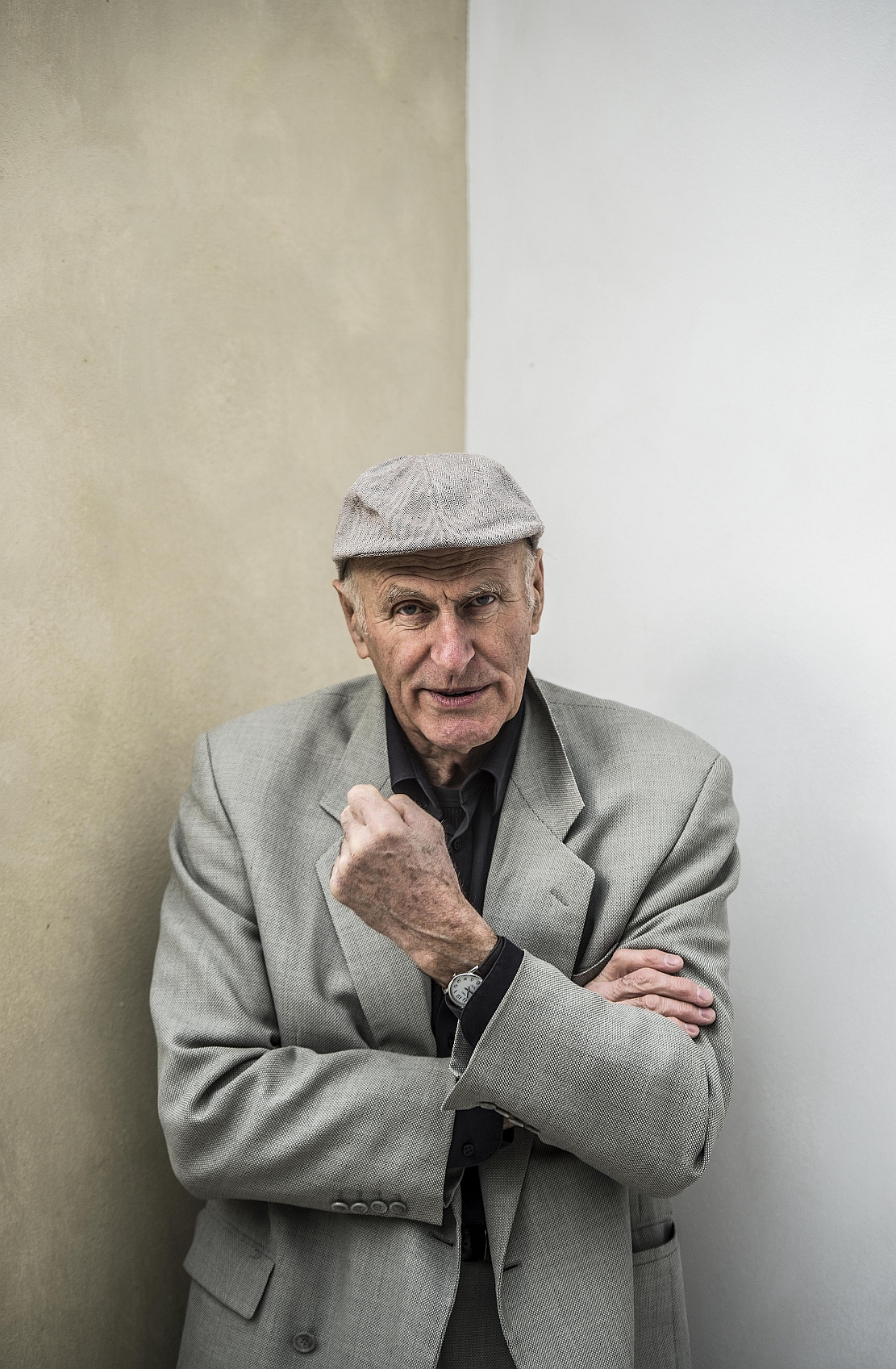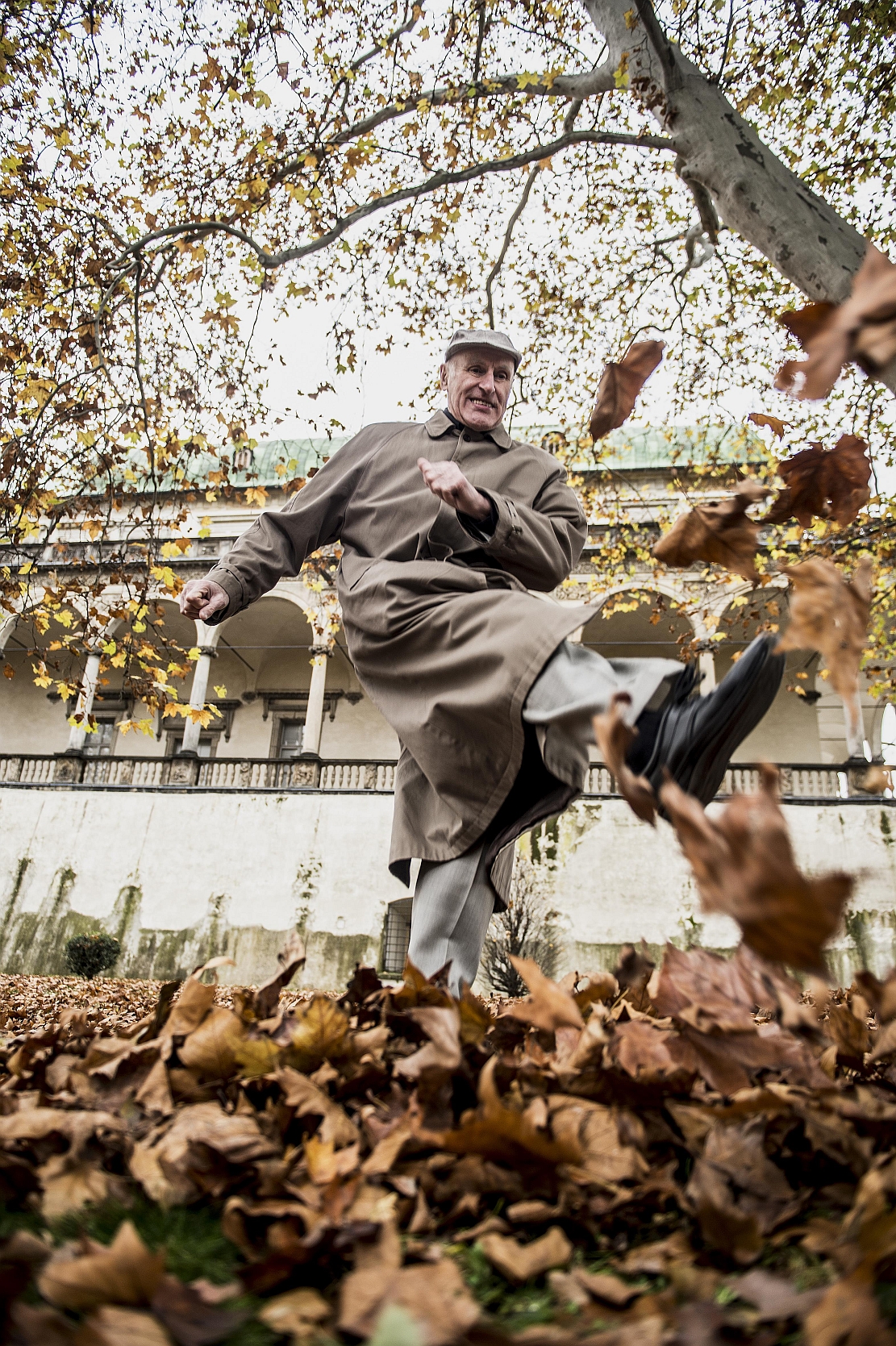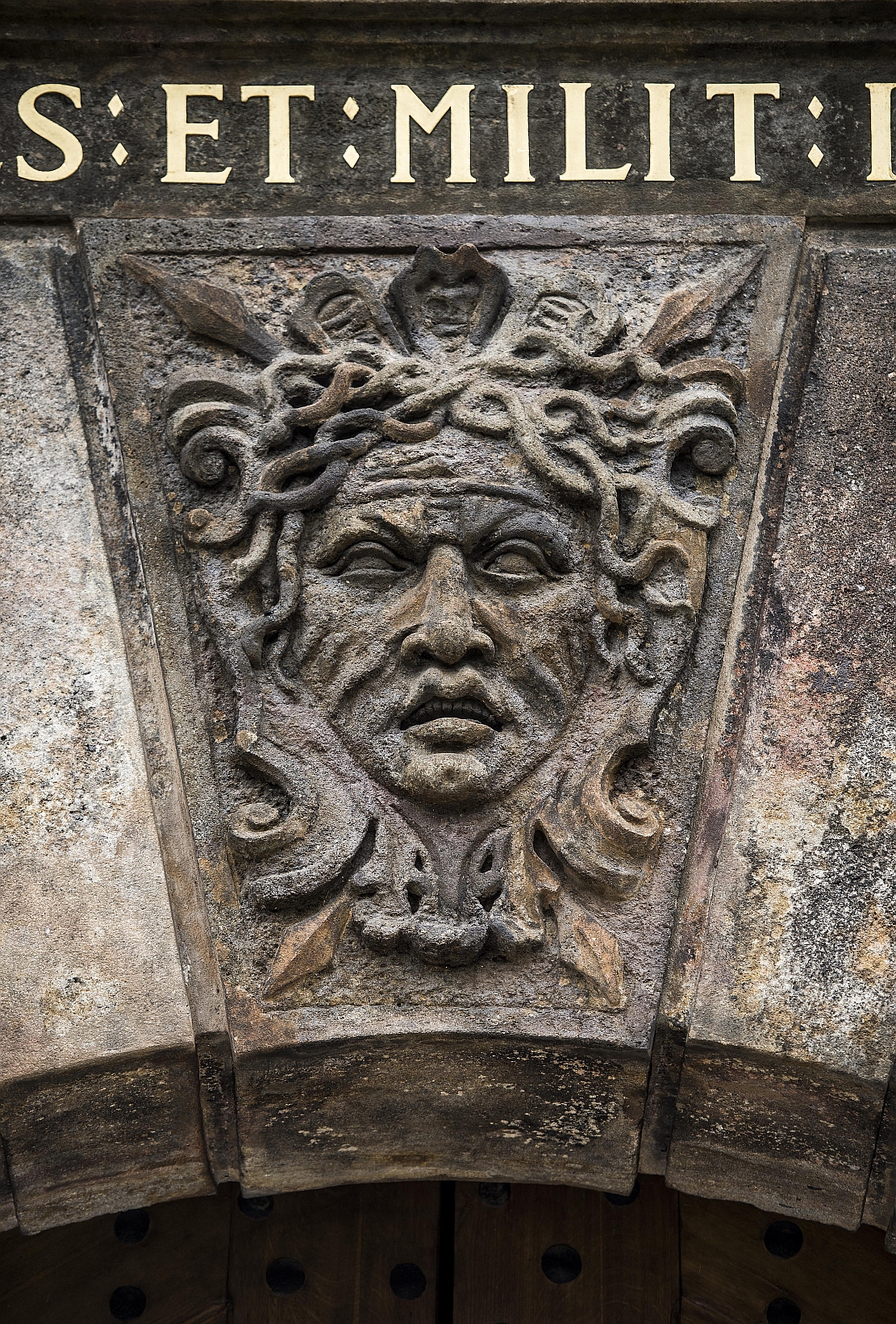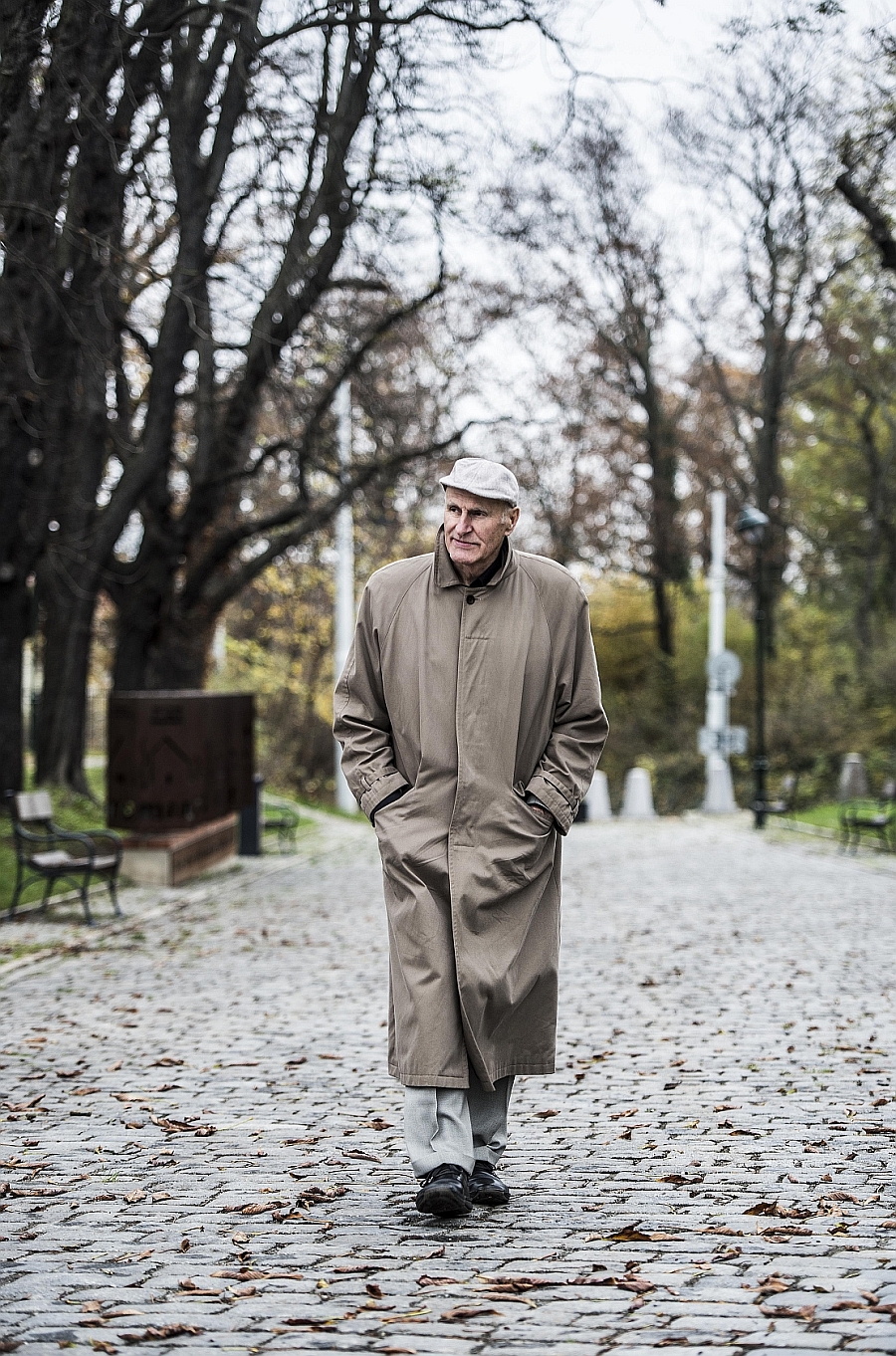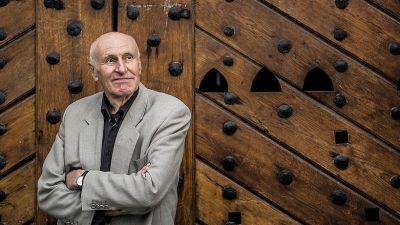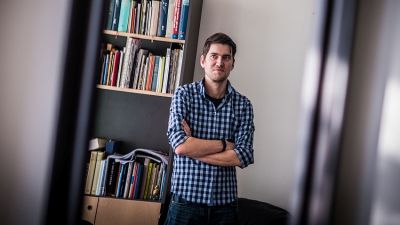Martin Hilský is a professor emeritus from the Faculty of Arts at Charles University and arguably Czechia's best known literary translator. Professor Hilský translated the complete works of William Shakespeare, including the Sonnets, into Czech, a monumental task. This, after he worked on other authors' works earlier in his career. He is a recipient of the Order of the British Empire, the State Prize for Translation, the National Czech Head prize, and the Magnesia Litera Award, which he received for a massively popular history entitled Shakespeare’s England: Portrait of an Age.
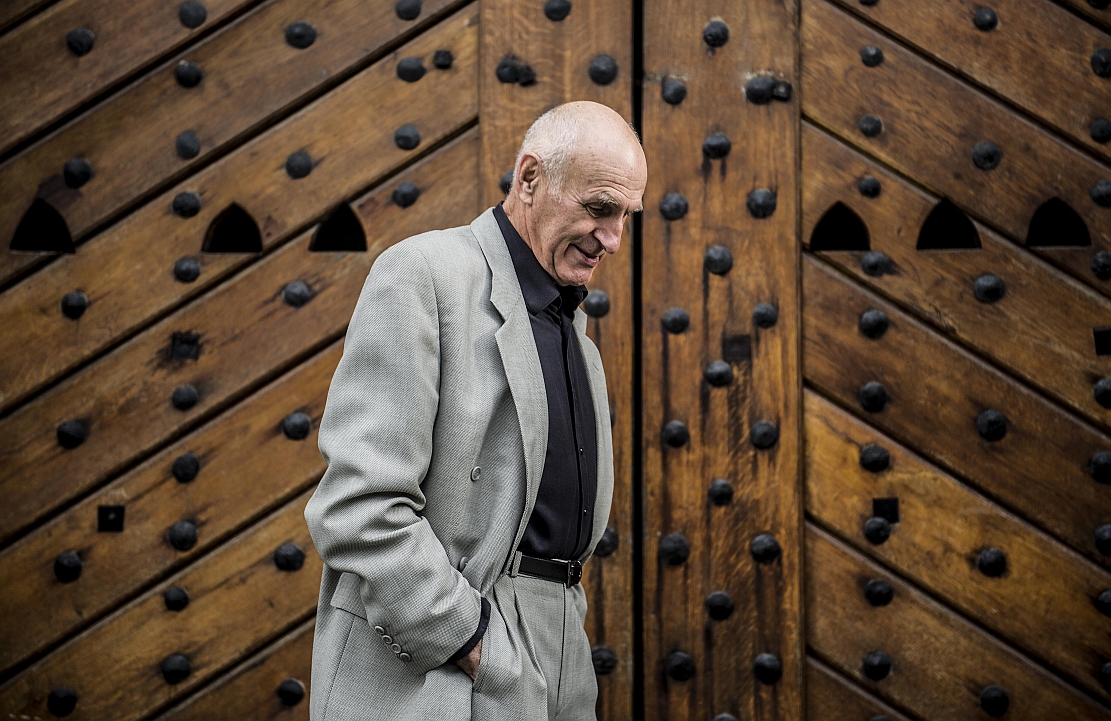
Professor emeritus Martin Hilský, one of Czechia's most respected translators and experts on Shakespeare, photographed for Forum by V. Šigut.
In this edition of the Forum Radio podcast, Martin Hilský discusses not only his work and love for Shakespeare and the Elizabethan Age but also discusses what life was like for a young student in communist Czechoslovakia, the vibrant cultural and political thaw in the 1960s, fear during the earlier Stalinist period, and his upbringing in an intellectual home - with his mother translating from Japanese and his father being an architect.
Excerpts from our interview:
A creative upbringing
“When it came to languages, I took after my mum. She was an Orientalist who wrote the first book on Japanese kabuki theatre in Czechoslovakia - an important volume at the time. My father was an architect and while he wasn’t good at languages – he ‘learned’ German all his life – we had a great many books at home and he was talented and very creative. When I was older and no longer a child I could discuss Le Courbisier with him and the problems of architecture; I was interested in Structuralism as there is a parallel between architecture and literary structures, so this was a kind of way of communication. In the case of my mother, the influence was much more direct. I saw her translating books and later read them in Czech and she asked for my comments, we had almost kinds of workshops.
[My parents] also had poetry readings at our home and I while I can’t be sure, I suspect the Japanese haiku – condensed in its meaning as it was – had an influence. But I was unaware of anything like that at the time. Later on, when I began translating Shakespeare’s Sonnets, this density of meaning proved extremely important. [Looking back at my mother’s work] it was really a privilege to look into a culture so vastly different from western culture. To me, it is still a source of inspiration today.”
“At university, I first enrolled in Czech studies but I had a friend who convinced me we should combine English and Spanish and in that way have North and South America – with the exception of Brazil – covered. And I thought, why not. I had never looked at things that way. Later, when I became a translator, it became clear combining Czech and English would have had benefits, opening possibilities with Czech or Slavonic Studies departments and for attending conferences abroad. This way, it was not possible to travel anywhere. Still, Spanish was fine and proved useful in studying the English Renaissance when Spain was the major power. I read a lot of classic literature – German, French – in Czech translation, but I read Cervantes and Lorca in the original Spanish.”
The mood in the mid- to late 1960s – and how things changed
“Things in communist Czechoslovakia began to improve in the mid-1960s in the years leading up to the Prague Spring just at the time when I was ending my studies. It was a wonderful time in a sense because suddenly European authors were making an impact, there was the rise of what later came to be known as the Czech New Wave – which included then up-and-coming directors like [Miloš] Forman – and you had the theatre director Otomar Krejča bringing Czech theatre international attention. You know, it was a time of hope but it was soon crushed by the Russian tanks in the invasion of 1968. It ended in tragedy and was a terribly traumatic event. It was one of the most important political events that I lived through and the frustration was immensely deep. It took 21 years for the situation to reverse and for things to go in the opposite direction. In 1989, [the fall of communism changed everything] and I experienced a much more productive period – much more intense – and the reason was, like others, I could finally speak my mind. Edgar says it at the end of King Lear: Speak what we feel and not what we ought to say.”
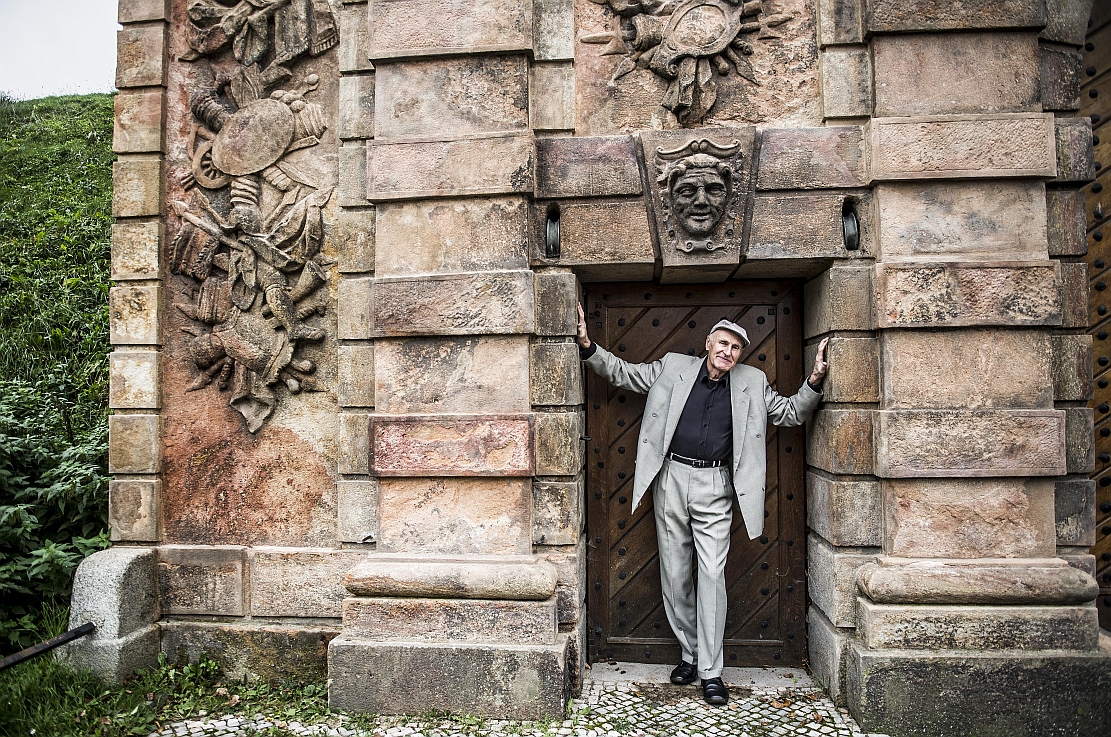
At Písecká brána - a Baroque gate in an area of Prague known as "Little England". The Hilskýs have lived within a stone's throw for generations.
Normalisation
“Purges began after the crushing of the Prague Spring and people who had been prominent in the thaw were sacked. The English Studies department was diminished as it was not considered reliable politically. At the Faculty of Arts, we did not teach languages but literature and culture; languages were just one necessary aspect. Nevertheless, we were subsumed by the German department and became the Department of German, Scandinavian and English Studies. It was an unimaginable scandal. My professor, Professor Stříbrný, was also sacked and forced to leave. He was lucky: he was able to join the linguistic faculty – and was able to write his History of English Literature in secret. But he had to remain ‘hidden’ and he was banned from conferences and could no longer teach.”
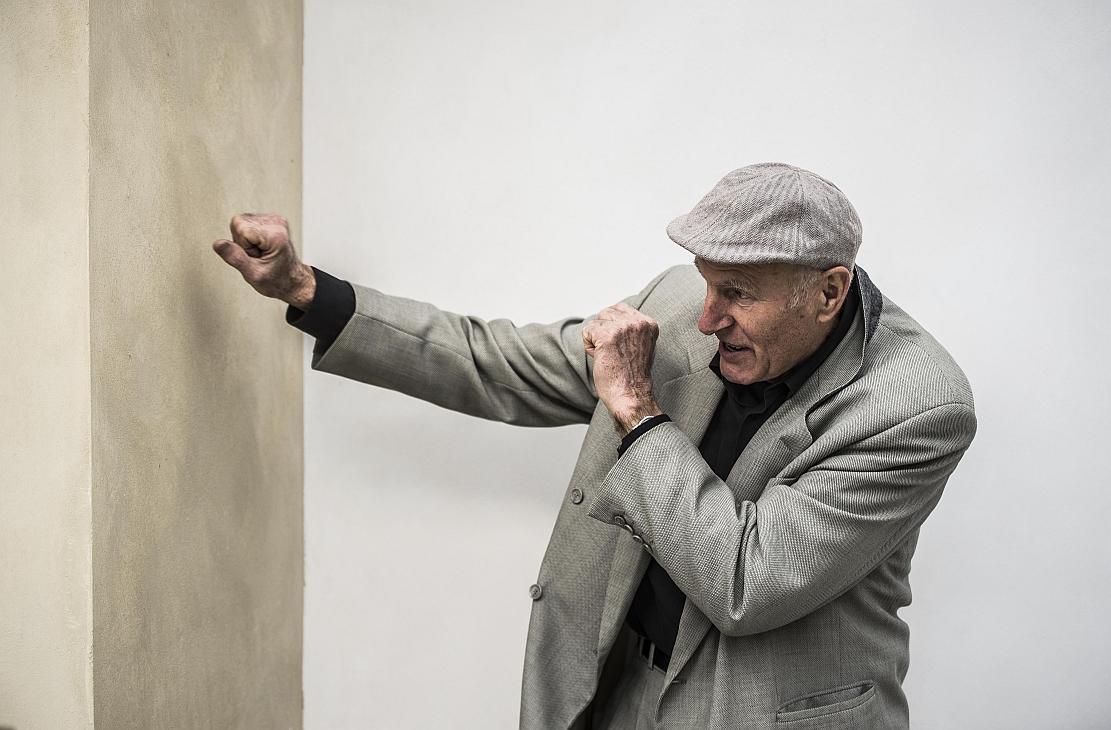
Translating Shakespeare into Czech means going against the grain; at times, the translator almost despaired over passages that were 'impossible'.
Translating duo
My wife, Kateřina, is also a literary translator. She translated four volumes of essays by George Orwell that are just brilliant. He was a born journalist more than a fiction writer: when you have someone like him, he boosted the entire culture, in opposition, challenging the overall view. So she did those essays and has translated more than 50 books and focused often on the classics. She translated Virginia Woolf, Jane Austen, as well as a fantastic novel by Henry James called The Portrait of a Lady, which had never been translated into Czech before. However, our work doesn’t overlap: we knew husband and wife teams, for example, who worked on translations together, but that wasn’t our case. But we did share when we discovered interesting problems.
Shakespearean journey
“I was one out of many, but at the beginning of my Shakespearean ‘career’ or ‘journey’, I wanted to change the way of translating blank verse, I wanted to stress the sentence structure and so on. The problem is that iambic metre is a rising metre, while Czech is a falling metre and they do not see eye-to-eye. If you translate Shakespeare, it requires you to go ‘upstairs’ and in Czech you have to go against the grain of the English language! You ‘go upstairs’ too, but you have to ‘cover up’ all of the effort you invested in doing so. It is not easy. You can do it but it is difficult and I gradually developed a way to approach it. Of course, this is only one aspect of many. The Czech school of translation is extremely interesting and I am proud to belong to the Czech tradition of translating Shakespeare. I would say one is always in debt to translators who came before, like Elliot said of the debt to dead poets when it came to writing poetry.”
Genius
“The semantic richness of English is unbelievable: there are so many layers. And what Shakespeare does with the language is almost a miracle. Shakespeare is not important because he invented new words, although he did, but for me that is not the essential thing. The essential thing is what he was able to do with the language he inherited and he changed the language into modern English, in fact. He didn’t only write great plays such as Hamlet but contributed to the language. In the Oxford Dictionary, quotations from Shakespeare are far more frequent than Biblical ones. Can you say this about any other author?”
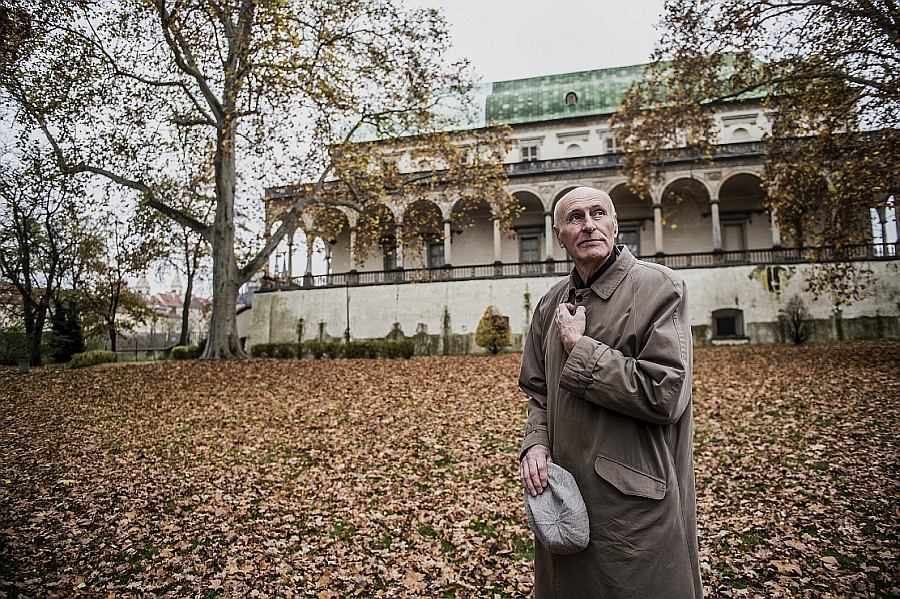
Martin Hilský near Queen Anne's Summer Palace in Prague. The palace was completed in 1565 - a year after William Shakespeare was born.
| Forum Radio - Interview / Episode 16 / Martin Hilský - Shakespeare changed the English language / Runtime: 48 minutes and 23 seconds |
Martin Hilský is a professor emeritus from the Faculty of Arts at Charles University, known for his exceptional talent and work as a literary translator. Professor Hilský translated the complete works of William Shakespeare including his Sonnets. He is a recipient of the Order of the British Empire, the State Prize for Translation, the National Czech Head prize, and the Magnesia Litera Award, which he received for the hugely successful Shakespeare’s England: Portrait of an Age. He was featured on the cover of Forum a few weeks after the tome, the work of several years, was published. Hilský is much sought-after in online broadcasts, lectures and interviews and was a guest in a 10-part series at Czech Radio earlier this year, coinciding with his 80th birthday.


